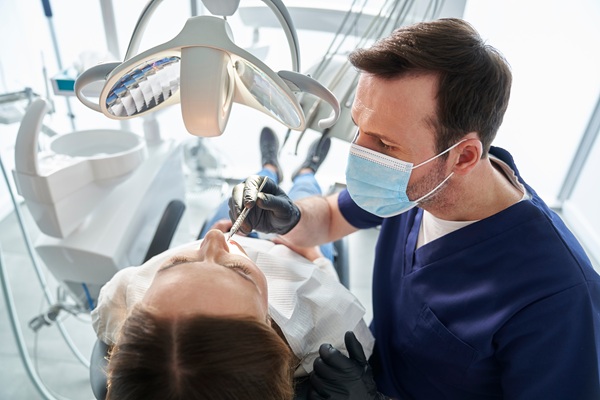Wisdom Teeth Extraction Frequently Asked Questions

If you need to schedule a wisdom teeth extraction, you likely have numerous questions about the procedure and what it entails. We encourage you to schedule a consultation with us to go over the details in person.
In the meantime, here is an FAQ with questions that we hear on a regular basis.
Why do I need to get my wisdom teeth out?
Most people have a professional remove their wisdom teeth when there is not enough room in the mouth for the wisdom teeth. The third molars can overcrowd the mouth and push the teeth out of alignment. In some cases, it may be more beneficial to remove the wisdom teeth before all the first and second molars grow in.
As such, if there is not enough room for wisdom teeth, it is better to extract them so they do not put pressure on the surrounding ones. Additionally, wisdom teeth left in the mouth can lead to pain and infections.
What are the options for extractions?
If teeth break through the surface of the gums and are coming in straight, then we can remove them with traditional extraction techniques. Traditional techniques involve pulling the tooth out after we numb the area surrounding the tooth. If the tooth is impacted or has yet to break through the surface of the gums, surgical extractions are necessary. In this case, the gum tissue will need to be cut open to expose the tooth.
After exposing the tooth, we can either lift the tooth out of the socket or break the tooth into pieces to remove each piece individually. Afterward, we will sufficiently clean the area, lay the gum tissue back down and suture the gums. We typically perform these surgical extractions are after a patient is put to sleep.
What is the recovery process like?
After a wisdom teeth extraction, one can expect for tenderness and swelling. To minimize this, use an ice pack or cold compress for 15 minutes every hour. Placing it on the face near where the area of the wisdom tooth can help to reduce swelling. Just be sure to use a paper towel or cloth so the ice does not directly touch the skin.
Additionally, ibuprofen is effective for reducing pain and swelling. We recommend that patients take a few days off work or school to avoid needing to communicate. It may be challenging to do so with the swelling, so this will allow for rest.
What can I eat afterward?
You need to avoid anything sharp or hard and stick with things like warm broth, yogurt, pudding and ice cream for a few days. Since your gums will be sore, you probably will not want much more than this. During a follow-up appointment, we will provide directions for when normal dietary habits can commence.
How do I learn more?
If you want to know more about a wisdom teeth extraction, what it is like, and if you need one, call our clinic and schedule an appointment. We can evaluate you and let you know what the best way to proceed is.
Request a dental appointment to dicuss wisdom teeth here: https://www.oaktreefamilydental.com or call Oak Tree Dental at (703) 945-1285 for an appointment in our Ashburn dental office.
Recent Posts
When wisdom teeth begin to come through, many are faced with the question of whether or not they need to have their wisdom teeth removed. While there are certainly instances where wisdom teeth removal is necessary, it is not always necessary.By being able to assess whether or not wisdom teeth are causing more trouble than…
Wisdom teeth can cause more trouble if they are left in. Remove them to relieve pain.Wisdom teeth extractions may become necessary when the third molars become impacted. The wisdom teeth can grow at odd angles or into other teeth, causing more pain and needing immediate removal.Wisdom Teeth ExtractionAt Oak Tree Dental in McLean, we work…
This article discusses when a dentist may recommend tooth extraction after an accident occurs. Tooth extractions may be necessary after a dental emergency if teeth are damaged beyond what dental restorations can address or if the teeth cannot be repositioned in their sockets properly.A dental emergency can happen at the most unexpected times. It is…
Visiting your dentist for tooth extraction can bring on anxiety for even the calmest people. The dentist's office is high on the list of most people's fears. For some patients, you walk into the office with pain and leave feeling better than ever. An extraction may not have been your first choice, but it may have…


